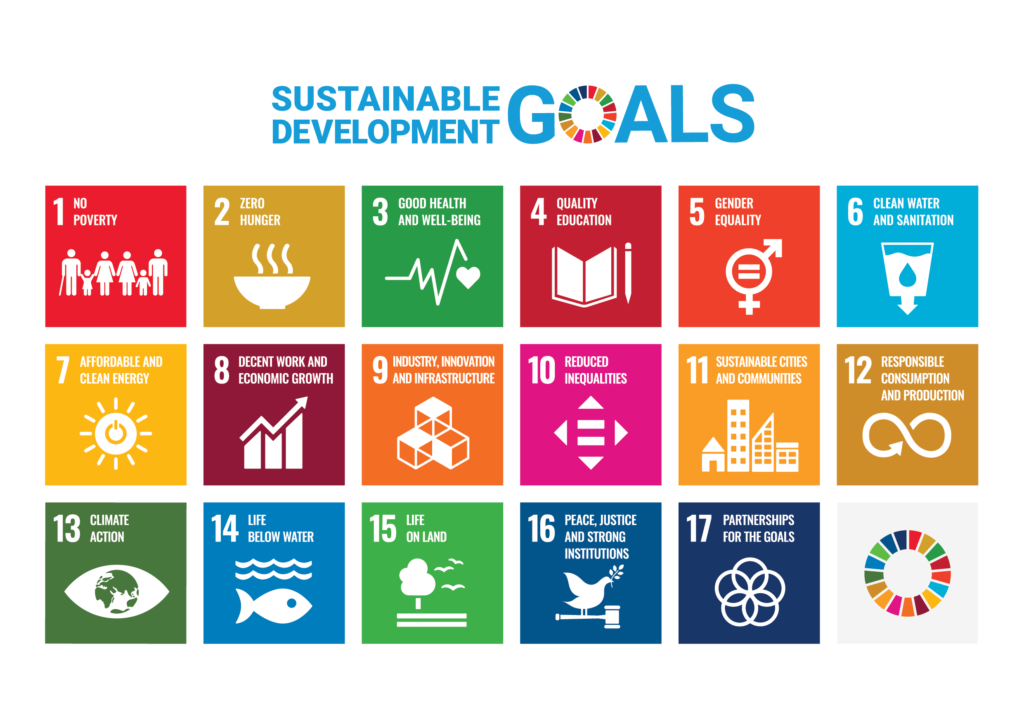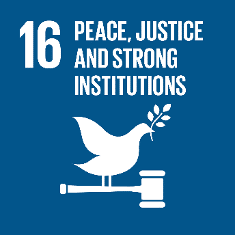By Dr. Kristin Drexler
Faculty Member, School of STEM
Author’s note: This article is part of an ongoing series on planetary sustainability. This series will examine socioecological systems — ecological and human factors — of sustainable Earth from the macro-view, using the United Nations global Sustainable Development Goals (SDGs) and other tools to better understand the complex whole of Earth sustainability and local applications for planetary protection.
March 31 is César Chávez Day, a holiday celebrating the birth and legacy of the Mexican-American civil rights and labor movement leader César Chávez. Proclaimed a federal commemorative holiday by Barack Obama in 2016, César Chávez Day is only observed in 10 states. It is a state holiday in California and is a commemorative or optional holiday in Arizona, Colorado, Illinois, Michigan, New Mexico, Texas, Utah, Wisconsin, and Rhode Island. Some of these states close schools and state offices to observe this day.
César Chávez Day is a day to celebrate and recognize civil rights, environmental justice and racial and economic anti-discrimination. It also acknowledges farm workers’ rights, such as the need for safe working conditions, proper medical coverage and fair wages.
Start a management degree at American Public University. |
Who Was César Chávez?
According to the César E. Chávez National Holiday organization, Chávez was an important and influential historical figure in community advocacy. He was born in Arizona in 1927. As a result of the Great Depression, his family lost their land and became migrant farm workers.
From the age of 10, Chávez traveled and worked as a farmer, picking fruit and vegetables to help his family survive financially. From his own experience, his life’s mission became to organize and unionize farmworkers to fight for better pay and safer working conditions on farms.
Chávez and Dolores Huerta were the founders and leaders of United Farm Workers (UFW) of America from 1972. He died in 1993 of natural causes.
Notable Events from Chávez’s Life
According to the César E. Chávez National Holiday organization, there are some notable historical events in Chávez’s lifetime:
- In 1966, Chávez led a 340-mile march to Sacramento to influence the passage of state laws protecting workers’ rights to organize as a union for safer working conditions and collective bargaining agreements.
- In 1968, Chávez organized strikes and a national boycott of grapes. The César E. Chávez National Holiday organization notes, “Carrying their red flags with black eagles on them to cities across the nation, union organizers rallied millions of Americans in support of the boycott and brought together a national coalition of unions, faith-based groups, students, racial minorities and consumers to support the farm workers.”
- In 1968, Chávez conducted a non-violent protest by going on a water-only fast to support farm worker strikes, eventually leading to powerful grape agri-businesses to accept the workers’ unions in 1970. In the following 10 years, Chávez led boycotts, strikes, and demonstrations which led to higher wages, family health coverage, pension benefits and other protections in the 1980s. The César E. Chávez National Holiday organization says, “Child labor was challenged, sexual harassment of women workers fought, [and] campaigns against pesticides were all integral to the UFW battles.”
- The César E. Chávez National Holiday organization also notes that in the summer of 1988, Chávez conducted a “36 day ‘Fast for Life’ to protest pesticide poisoning of grape workers and their children. Chávez and the UFW were pioneers on the issue of environmental justice combining the struggles against pesticides which harm workers to the fight for a safe food supply for all America. The UFW were also champions of voter registration, get out the vote and civil rights.”
Chávez’s Legacy and Its Link to Environmental Justice
The legacy of César Chávez is rooted in community service, civil rights, political representation, anti-immigrant discrimination, and social and environmental justice. The pillars of social justice include equity and equality, access, participation, and human rights, including concepts such as poverty, race and ethnicity, gender and society, and welfare.
Environmental justice involves principles of social justice in the context of the natural and built environment around us. The Environmental Protection Agency (EPA) defines environmental justice as “the fair treatment and meaningful involvement of all people regardless of race, color, national origin, or income, with respect to the development, implementation, and enforcement of environmental laws, regulations, and policies. This goal will be achieved when everyone enjoys: 1) The same degree of protection from environmental and health hazards, and 2) Equal access to the decision-making process to have a healthy environment in which to live, learn, and work.”
How Chávez’ Legacy of Justice Connects to the UN’s Sustainable Development Goals
The efforts of César Chávez to achieve social and environmental justice directly relate to at least three of the 17 pillars of the United Nations (UN) Sustainable Development Goals.

For example, Chávez’ legacy of social and environmental justice connects to at least three SDGs:
- #8: Decent Work and Economic Growth
- #10: Reduced Inequalities
- #16: Peace, Justice and Strong Institutions
Sustainable Development Goal #8: Decent Work and Economic Growth

UN SDG #8 promotes “sustained, inclusive and sustainable economic growth, full and productive employment and decent work for all.”
The economic growth targets of SDG #8 that are related to Chávez’s work are:
“8.3 Promote development-oriented policies that support productive activities, decent job creation, entrepreneurship, creativity and innovation, and encourage the formalization and growth of micro-, small- and medium-sized enterprises, including through access to financial services.
8.4 to…decouple economic growth from environmental degradation, in accordance with the 10-year framework of programmes on sustainable consumption and production.
8.5 By 2030, achieve full and productive employment and decent work for all women and men, including for young people and persons with disabilities, and equal pay for work of equal value, and
8.8 Protect labour rights and promote safe and secure working environments for all workers, including migrant workers, in particular women migrants, and those in precarious employment.”
Sustainable Development Goal #10: Reduced Inequalities

UN SDG #10 is to “reduce inequalities within and among countries.” Specifically, the equality targets of SDG 10 that align with Chávez’s legacy are:
“10.1 By 2030, progressively achieve and sustain income growth of the bottom 40 per cent of the population at a rate higher than the national average.
10.2 By 2030, empower and promote the social, economic and political inclusion of all, irrespective of age, sex, disability, race, ethnicity, origin, religion or economic or other status.
10.3 Ensure equal opportunity and reduce inequalities of outcome, including by eliminating discriminatory laws, policies and practices and promoting appropriate legislation, policies and action in this regard, and
10.4 Adopt policies, especially fiscal, wage and social protection policies, and progressively achieve greater equality.”
Sustainable Development Goal #16: Peace, Justice and Strong Institutions

UN SDG #16 is to “Promote peaceful and inclusive societies for sustainable development, provide access to justice for all and build effective, accountable and inclusive institutions at all levels.” The justice and inclusion targets of SDG 16 that match the Chávez legacy are:
“16.3 Promote the rule of law at the national and international levels and ensure equal access to justice for all.
16.7 Ensure responsive, inclusive, participatory and representative decision-making at all levels, and
16.B Promote and enforce non-discriminatory laws and policies for sustainable development.”
Participation and Community-Based Activism
Social and environmental justice include equity and equality, access, participation, and human rights. An essential element of social justice is community organization, participation and action.
César Chávez once stated: “Once social change begins, it cannot be reversed. You cannot un-educate the person who has learned to read. You cannot humiliate the person who feels pride. You cannot oppress the people who are not afraid anymore. We have seen the future, and the future is ours.”
Conservation Colorado states Chávez formed “one of the most effective grassroots organizations in modern U.S. history. As we honor Cesar Chávez and his legacy, we must remember that his fight encompassed the right to work and live in a healthy environment with clean air and water. No one should have to choose between a dignified wage and a safe environment.”
How You Can Support Conservation, Community Service and Environmental Justice
At the university, there are several student organizations dedicated to science, environmental conservation, community service and justice. Here is a sample list of organizations that include some of César Chávez’s ideals of service, justice, and environmental health:
- National Association of Environmental Professionals
- Association of Latino Professions for America
- Association for Women in Science (AWIS)
- Women in STEM (wSTEM)
- Save the Earth
These organizations are open to APU and AMU students, alumni, university staff, and faculty. All are welcome and encouraged to join; most of these chapters have free memberships.
About the Author
Dr. Kristin Drexler is a full-time faculty member in the Space and Earth Studies Programs. She teaches geography, environmental science, earth system history, and conservation of natural resources for the School of STEM. She earned her Ph.D. in educational leadership at New Mexico State University by researching socioecological systems, sustainable agroecology and community education. She earned her Master of Arts in international affairs with an emphasis in natural resources management from Ohio University.
Kristin has conducted numerous community surveys in Belize regarding agroforestry, conservation and sustainable agriculture. Until she became a full-time instructor with APU in 2009, she was an environmental scientist in New Mexico, conducting field biology surveys and environmental impact analyses. Drexler founded the Belize Field School Program at NMSU, coordinating short courses in Belize in wildlife, agroforestry, marine ecology, and documentary film (2006-2014) and produced an award-winning short film, “Yochi” in 2017 about youth conservation and action against poaching and illegal wildlife trade. In the late 1990s, she served as a Peace Corps volunteer in Belize. She co-founded and serves on the board of directors of Full Basket Belize, a U.S. nonprofit that provides high school scholarships and community grants in Belize. Kristin serves as a faculty advisor for the university’s wSTEM and AWIS chapters.

Comments are closed.